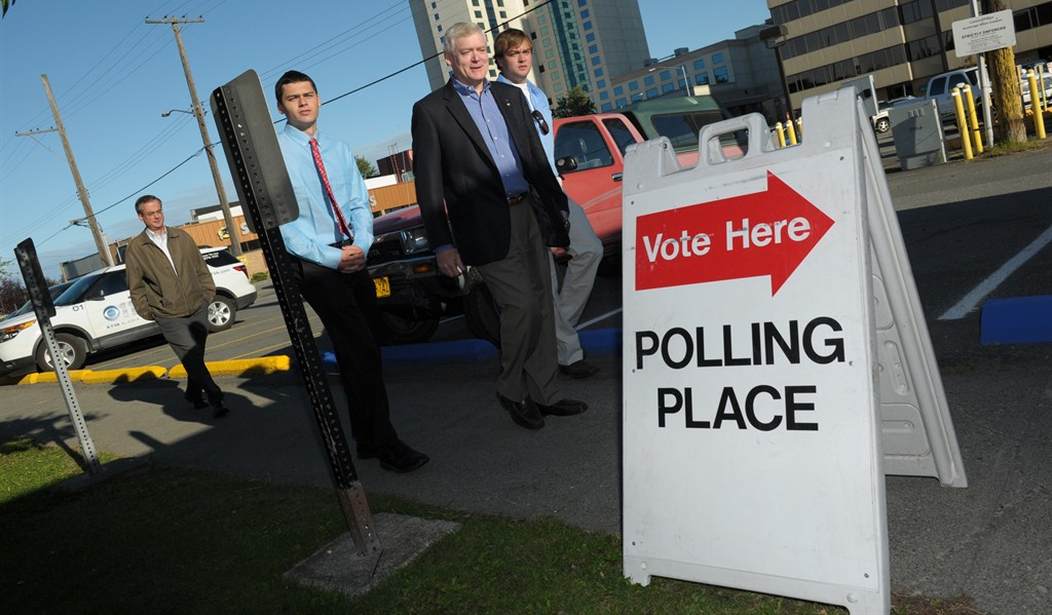In 2022, Alaska made the regrettable decision to move to ranked-choice voting. Confusion ensued and the results of major races were distorted as a result. The state's sole House seat wound up going to the Democratic candidate who received fewer votes than Republicans Sarah Palin and Nick Begich because the conservative vote wound up being split in half. That may be about to change after just one election cycle, however. There is an initiative on the ballot this year that would eliminate ranked-choice and return to traditional elections. But that initiative is being challenged and it may not wind up staying on the ballot. (Associated Press)
Alaska’s new election system — with open primaries and ranked voting — has been a model for those in other states who are frustrated by political polarization and a sense that voters lack real choice at the ballot box.
Used for the first time in 2022, the changes helped propel the first Alaska Native to a seat in Congress. They could be short-lived.
Opponents of ranked voting want to repeal it and are entangled in a legal fight over whether their initiative will be able to remain on Alaska’s November ballot. It’s just one example this year of an intensifying fight over a more expansive way for voters to choose candidates, driven in part by deep dissatisfaction with the status quo and opposition from political parties and partisan groups that fear losing power.
If you read through the linked article, you will see that the folks at the Associated Press are big fans of ranked-choice voting, probably because it seems to magically benefit Democrats wherever it's implemented. Becky Bohrer writes at length about how this is a way to provide "real choice at the ballot box" and how the only people opposing it are "partisan groups that fear losing power."
This is, of course, hogwash. There are plenty of problems with ranked-choice voting, not least of which is the fact that it makes what should be a relatively simple task more confusing for voters. Traditional primary and general elections already offered voters choices while allowing the voters of each party to determine who their candidates would be. Third-party candidates and independents are also able to gain ballot access if they attract a following.
Proponents of the system point out that candidates can still win an election in one round provided they garner more than 50% of the vote. But many races are decided by a plurality and there's nothing wrong with that. Further, when you eliminate the candidate with the lowest number of votes and transfer their votes to their second choice, they are effectively getting to vote more than once. But that wasn't their original intent, so this system artificially inflates the support of other candidates.
Elections should be one-and-done scenarios. Let everyone who qualifies for ballot access make their case and let the chips fall where they may. All of this counting and recounting makes a mockery of the entire process. Here's to hoping that the voters in Alaska realize the error they made two years ago and return to the reliable voting process that we've relied on for centuries. Ranked-choice voting is simply a solution to a "problem" that didn't exist.








Join the conversation as a VIP Member